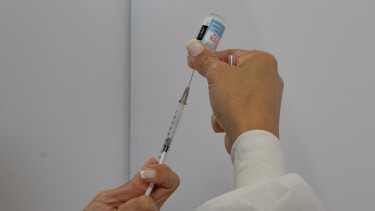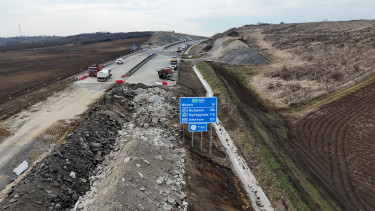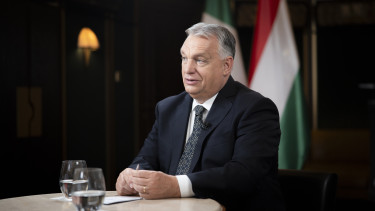Economy
EU offers carrot instead of stick to Hungary and Poland
Eyeing Budapest and Warsaw, Jourová said that she would propose for the next Multiannual Financial Framework (MFF) to “simplify" and “soften" cohesion rules if countries agree to come under the new EU prosecutor’s oversight, she told a group of journalists today, EurActiv reported.
She argued that in the current system there are “too many actors" and rules to ensure a better spending of EU funds. But instead of improving the quality of EU budget management, they overheat the system.
“I always want to keep control and order, but I don’t want to enable duplicity of controlling bodies in member states," she said.
In her view, once the EPPO is fully operational in 2020, the new body would act as a deterrent. As a result, less preventive rules would be needed to avoid mismanagement or fraud committed using EU funds.
The EPPO will be an independent Union body with the authority to investigate and prosecute EU-fraud and other crimes affecting the Unions financial interests. The establishment of the EPPO will bring about substantial change in the way the Unions financial interests are protected. It will combine European and national law-enforcement efforts in a unified, seamless and efficient approach to counter EU-fraud.
Currently, only national authorities can investigate and prosecute EU-fraud. Their competences stop at their national borders. Existing Union-bodies (such as OLAF, Eurojust and Europol) do not have and cannot be given the mandate to conduct criminal investigations.
The EPPO will fill this institutional gap. It will have exclusive and EU-wide jurisdiction to deal with suspicions of criminal behaviour falling within its remit.
The EPPO will be an efficient Union body pooling investigative and prosecutorial resources of the Member States with clear hierarchical lines to ensure swift decision making. It will have uniform investigation powers throughout the Union based on and integrated into the national law systems of the Member States. Click here for more.
Countries that still turn down the option to be under the EPPO’s supervision will have to comply with the existing preventive rules and more scrutiny from OLAF, the EU’s anti-fraud agency.
The new EU prosecutor will investigate fraud and corruption cases involving cohesion and agricultural funds. It will also prosecute VAT fraud, as this tax is used to finance the EU budget.
According to some conservative estimates, every year EUR 500 million is lost in EU projects. In the case of VAT, the Commission believes that criminal networks are causing a EUR 50 billion hole in member state public finances using the so-called carousel scheme.
But for Jourová it is not only a question of money. “There is too much trust at stake," she stressed. If money allocated for roads and wind farms ends up in the Bahamas or Cartier watches, the bloc’s common pot would lose support from member states.
This week, the European Parliament gave its approval to the EPPO. The Council is expected to give its final blessing next week.
I truly believe that EPPO could enable us to simplify the rules
, she insisted.She argued that in the current system there are “too many actors" and rules to ensure a better spending of EU funds. But instead of improving the quality of EU budget management, they overheat the system.
“I always want to keep control and order, but I don’t want to enable duplicity of controlling bodies in member states," she said.
In her view, once the EPPO is fully operational in 2020, the new body would act as a deterrent. As a result, less preventive rules would be needed to avoid mismanagement or fraud committed using EU funds.
What is the EPPO?
The EPPO will be an independent Union body with the authority to investigate and prosecute EU-fraud and other crimes affecting the Unions financial interests. The establishment of the EPPO will bring about substantial change in the way the Unions financial interests are protected. It will combine European and national law-enforcement efforts in a unified, seamless and efficient approach to counter EU-fraud.
Currently, only national authorities can investigate and prosecute EU-fraud. Their competences stop at their national borders. Existing Union-bodies (such as OLAF, Eurojust and Europol) do not have and cannot be given the mandate to conduct criminal investigations.
The EPPO will fill this institutional gap. It will have exclusive and EU-wide jurisdiction to deal with suspicions of criminal behaviour falling within its remit.
The EPPO will be an efficient Union body pooling investigative and prosecutorial resources of the Member States with clear hierarchical lines to ensure swift decision making. It will have uniform investigation powers throughout the Union based on and integrated into the national law systems of the Member States. Click here for more.
Countries that still turn down the option to be under the EPPO’s supervision will have to comply with the existing preventive rules and more scrutiny from OLAF, the EU’s anti-fraud agency.
The new EU prosecutor will investigate fraud and corruption cases involving cohesion and agricultural funds. It will also prosecute VAT fraud, as this tax is used to finance the EU budget.
According to some conservative estimates, every year EUR 500 million is lost in EU projects. In the case of VAT, the Commission believes that criminal networks are causing a EUR 50 billion hole in member state public finances using the so-called carousel scheme.
But for Jourová it is not only a question of money. “There is too much trust at stake," she stressed. If money allocated for roads and wind farms ends up in the Bahamas or Cartier watches, the bloc’s common pot would lose support from member states.
Hungary and Poland are two of the countries that, to date, have refused to join enhanced cooperation to set up the public prosecutor’s office.
The Netherlands, Sweden and Malta also ruled out supporting the project, as they are wary of the negative impact it may have on their national judiciary systems. Meanwhile, Denmark, the UK and Ireland have an opt-out on judiciary matters.This week, the European Parliament gave its approval to the EPPO. The Council is expected to give its final blessing next week.








